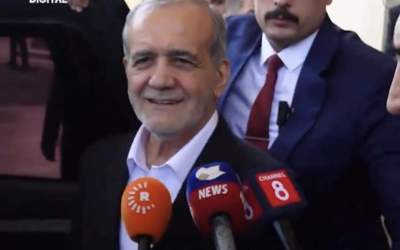Sunday 7 February 2016 - 17:23
Story Code : 200640
Iranís FM highlights role of European nations to settle Syria Crisis
In an op-ed published in Italian daily La Repķblica as well as Spainís El PaŪs, Zarif wrote that a proper momentum toward a just political solution in Syria has been generated and that European countries can play an effective role in strengthening this process.
Following is the full text of the Iranian foreign ministerís piece:
A New Chapter in Diplomacy
President Rouhani's recent visit to Italy and France marked the historic beginning of a new season of economic, political, and cultural cooperation beneficial to both sides, after roughly a decade of being interrupted.
Italy and France, as two pillars and founders of the European Union as well as traditional bridges between the West and the Middle East, have often had constructive relationship with Iran, although at times this relationship has experienced ups and downs and even passing crises, still the desire of both sides to overcome the problems and fix the difficulties reflects their deep connections. Even though the unnecessary so-called nuclear ďcrisisĒ and the intrusion of certain third parties created some interruptions in the traditional relations between Iran and Europe, both the warm welcome for President Rouhani, the various and serious high ranking meetings that transpired during this trip, as well as the important agreements that were reached, represent the restoration of economic relations and cooperation in all energy, technology, political, cultural, and even security fields.
Also, President Rouhaniís meeting with Pope Francis, marked a mutual commitment to join efforts to create a World Against Violence and Extremism (WAVE). To recall, in September 2013, newly-elected President Rouhani made this initiative at the UN General Assembly as a key foreign policy agenda of Iran; the General Assembly adopted this initiative by consensus and thus sparked the hope for creating a prudent global campaign to fight the menace of terrorism and extremism.
On a broader level, from ancient times Europe and Iran have been each otherís civilizational neighbors. With the start of the implementation of the nuclear agreement, which has put an end to unnecessary decade-old tensions, it is now time to focus on more important matters, above all a common search on how to achieve the mechanisms for Iran and other influential countries to expand their cooperation based on shared interests and the need to confront the common threats.
Indeed, Europe and Iran have common interests in several areas. In light of their historical and traditional bilateral relations as well as other positive sources, such as the existence of complementary economies, mutually-beneficial cooperation in the fields of energy and technology, cultures of Indo-European languages, and other long-standing cultural connections, their sustained cooperation with each other is guaranteed. In addition, through both collective and bilateral mechanisms, it is possible to actively pursue the struggle against the important threats such as terrorism, violence, extremism, drug trafficking, and the like.
The missing link alongside economic and technological cooperation, which should generate sufficient attention, is the necessity for the two sides to increase cooperation in the fight against violence and extremism and to quickly restore peace and stability in the Middle East; the lack of sufficient attention to this is a threat to both Iran and Europe.
Iran, as a country located in the heart of the Middle East and Europe as an immediate neighbor of the region, share legitimate concerns about the continuation of hostilities and bloodshed in the region, especially the crisis of displaced persons in three countries ó Syria, Iraq, and Yemen.
Iran for quite some time has proposed and updated two four-point proposals to solve the current crises in Syria and Yemen, a large part of which have been incorporated in Security Council resolution 2254. The common points of these plans include an immediate cease-fire, humanitarian assistance to the non-combatants, facilitating dialogue among the groups from inside of the country and guiding them to form inclusive government of national unity Ė that would have the potential to restore peace and stability to the region.
After the Vienna 1 and 2 and the New York talks on Syria, and the adoption of UN Security Council Resolution 2254, a proper momentum toward a just political solution in Syria has been generated and the European countries can play an effective role in this connection to strengthen and sustain this process.
Also, confronting the roots and manifestations of structural violence and the effects of extremism, including the fight against poverty and economic inequality, promoting the mechanisms for democracy, avoiding the violent and sectarian conflicts, and opposing unilateral military actions, these are important foreign priorities that can help restore the stability of the Middle East and the European Union can definitely play a positive role in this framework.
Security can never be achieved in expense of insecurity for the others. No nation can truly pursue its interests without taking into consideration the interests of others. No one can combat Al-Qaeda and its ideological siblings, such as the so-called Islamic State, which is neither a state nor Islamic, in Iraq while effectively assisting their expansion in Yemen or Syria. In this regard, European countries by encouraging other countries in the Middle East to accept a political solution for this crisis play a positive role in the region.
A final word: the world community that includes Iran and Europe cannot afford to avoid addressing the root causes of instability in the Middle East any longer. At the same time, this presents a unique opportunity for interaction and cooperation that should not be missed. Peace and stability is the fundamental need of civilization in the Middle East, Europe, and indeed the world. In todayís interconnected world marked with growing mutual interdependence, this is not a choice, rather it is an inescapable necessity.
By Tasnim News Agency
# Tags










